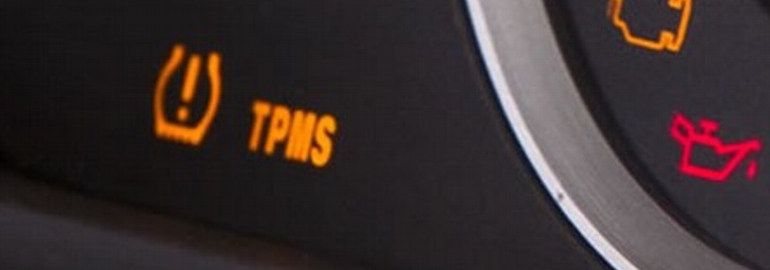WHAT IS TPMS?
TPMS stands for TIRE PRESSURE MONITORING SYSTEM. This is an electronic system that is designed to monitor the air pressure inside each of your tires.
 The TPMS reports real-time tire pressure information to the driver of the vehicle. Typically, when a tire pressure is low, a warning light or ‘pictogram’ will be displayed on the dash board.
The TPMS reports real-time tire pressure information to the driver of the vehicle. Typically, when a tire pressure is low, a warning light or ‘pictogram’ will be displayed on the dash board.
WHY TPMS?
TPMS was initiated for two very specific reasons:
One reason Tire Pressure Monitoring Systems (TPMS) are installed on vehicles is to help drivers avoid traffic accidents due to under-inflated tires by early recognition of the malfunction of tires.
Reducing rolling resistance thus increasing overall fuel efficiency.
The way your tire works in all different driving conditions is directly connected to its inflation. Things like braking distance and stability of the vehicle through lane changes and abrupt moves requires that the inflation pressure of your tires be maintained at the pressure that’s specified by the manufacturer.
 WHAT HAPPENS IF MY TIRES ARE UNDER INFLATED?
WHAT HAPPENS IF MY TIRES ARE UNDER INFLATED?
Extreme under-inflation can even lead to what is known as thermal and mechanical overload. That’s caused by tires overheating when they are under inflated. That can lead to the sudden destruction of the tire itself making the vehicle difficult to handle and potentially unsafe.
WHAT ABOUT FUEL EFFICIENCY AND TIRE PRESSURE?
Your car’s fuel efficiency and tire wear are severely affected by under-inflation. Tires do not only leak air if punctured, they also leak air naturally. Did you know that over a year, even a typical new, properly mounted tire can lose from 20 to 60 kPa (3 to 9 psi)? That’s roughly 10% or even more of its initial pressure.
Other visitors wanted to…
Book An AppointmentGet CouponsFind Us Fast Ask A MechanicSee Our Auto ServicesRead Customer Reviews
WHAT ARE THE ADVANTAGES OF TIRE PRESSURE MONITORING (TPMS) ?
There are several advantages to TPMS or Tire Pressure Monitoring Systems.
Those advantages range from saving money on gas to reduced cost of auto service and maintenance because of longer tire life.
 Fuel savings: Studies show that for every 10% of under-inflation on each tire on a vehicle, a 1% reduction in fuel economy will occur. In the United States alone, the Department of Transportation estimates that under inflated tires waste 2 billion US gallons of fuel each year.
Fuel savings: Studies show that for every 10% of under-inflation on each tire on a vehicle, a 1% reduction in fuel economy will occur. In the United States alone, the Department of Transportation estimates that under inflated tires waste 2 billion US gallons of fuel each year.
Extended tire life: Under inflated tires are the #1 cause of tire failure and contribute to tire disintegration, heat buildup, ply separation and sidewall or casing breakdowns.
Moreover, running a tire even briefly on low tire pressure breaks down the casing and prevents the ability to retread. 
It is important to note that not all sudden tire failures are caused by under-inflation. Structural damages caused, for example, by hitting sharp curbs or potholes, can also lead to sudden tire failures, even a certain time after the damaging incident. These cannot be proactively detected by any TPMS.
Decreased downtime and maintenance: Under-inflated tires lead to costly hours of downtime and maintenance.
Improved safety: Under-inflated tires lead to tire failure and tread separation. It’s estimated that under inflation of tires results in 40,000 accidents, 33,000 injuries and over 650 deaths per year.
On the other hand, when your car’s tires are properly inflated, they add greater stability, handling and braking efficiencies. Overall, they provide greater safety for the driver, passengers, the vehicle, the loads and others on the road.
Other visitors wanted to…
Book An AppointmentGet CouponsFind Us Fast Ask A MechanicSee Our Auto ServicesRead Customer Reviews

